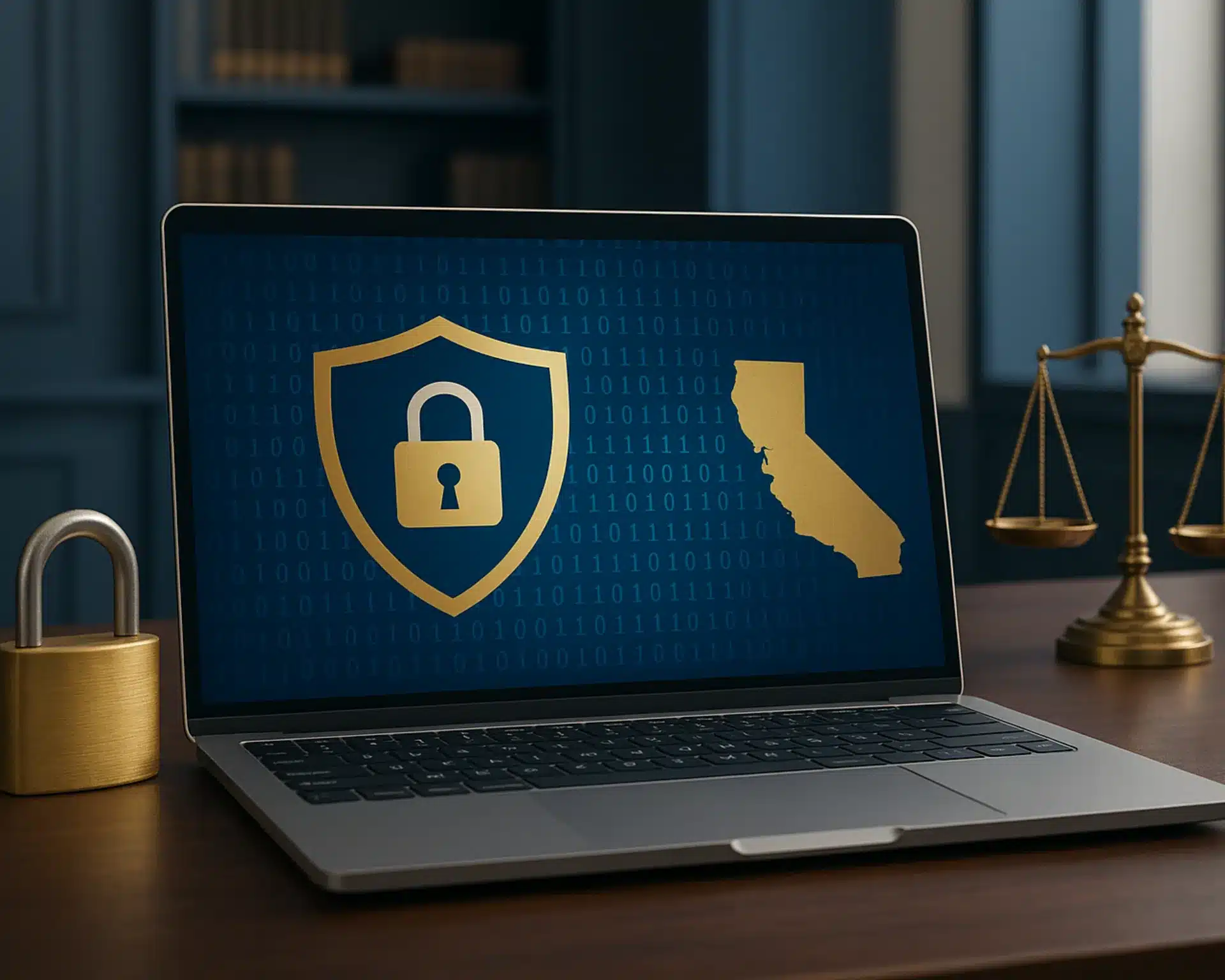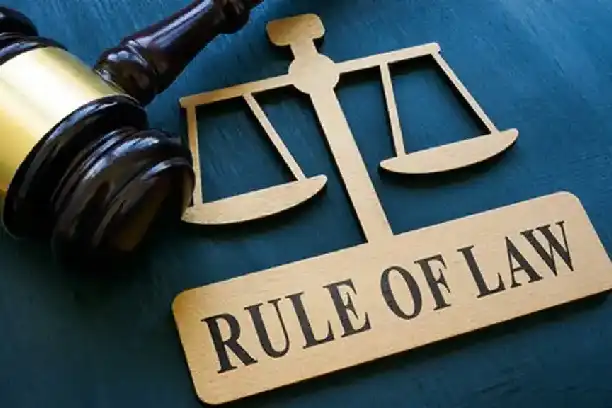In today’s digital age, your personal information is more vulnerable than ever before. From data breaches affecting millions of Americans to smart home devices collecting intimate details about your daily life, the threats to your digital privacy are real and growing. If you live in California, you’re fortunate to have some of the strongest privacy protections in the nation — but understanding and exercising those rights often requires legal expertise.
Cybersecurity and privacy law has emerged as the most in-demand legal specialty of 2025, according to industry experts. Whether you’ve been the victim of a data breach, discovered unauthorized access to your personal information, or simply want to understand your rights under California’s groundbreaking privacy laws, knowing when and how to seek legal help can make all the difference in protecting your digital life.
Understanding California’s Privacy Laws: CCPA and Beyond
California leads the nation in digital privacy protection, thanks primarily to the California Consumer Privacy Act (CCPA) and its expansion, the California Privacy Rights Act (CPRA). These laws give California residents unprecedented control over their personal information — but many people don’t realize the full extent of their rights.
Under the CCPA, you have the right to know what personal information businesses collect about you, why they collect it, and who they share it with. You can request that businesses delete your personal information, opt out of the sale of your data, and even correct inaccurate information. These aren’t just suggestions — they’re legally enforceable rights backed by significant penalties for violations.
The CPRA, which took full effect in 2023, strengthened these protections even further. It created the California Privacy Protection Agency, the first dedicated privacy enforcement agency in the United States, and introduced new rights around sensitive personal information like health data, financial information, and precise geolocation. For California residents, these laws represent some of the most comprehensive privacy protections available anywhere in the world.
Common Cybersecurity and Privacy Violations
Understanding your rights is the first step — recognizing when they’ve been violated is the next. Cybersecurity and privacy violations take many forms, and not all of them are immediately obvious.
Data Breaches and Identity Theft
Data breaches have become alarmingly common, with major companies regularly announcing that customer information has been compromised. According to the Federal Trade Commission, millions of Americans experience identity theft each year, often as a direct result of corporate data breaches. When a company fails to adequately protect your personal information and that failure leads to identity theft, fraud, or financial loss, you may have grounds for legal action.
The consequences of data breaches extend far beyond immediate financial loss. Victims often spend years dealing with fraudulent accounts, damaged credit scores, and the ongoing anxiety of not knowing where their information might surface next. A cybersecurity lawyer can help you hold negligent companies accountable and seek compensation for both financial damages and the time and stress involved in recovering from identity theft.
Unauthorized Data Collection and Sharing
Many businesses collect far more information than necessary and share it with third parties without proper consent. This might include tracking your location without permission, collecting biometric data like fingerprints or facial recognition without disclosure, or selling your personal information to data brokers without giving you the option to opt out.
California law requires businesses to be transparent about data collection practices and to obtain proper consent before collecting certain types of sensitive information. When companies violate these requirements — whether through deceptive privacy policies, hidden tracking technologies, or failure to honor opt-out requests — they can face substantial penalties, and you may be entitled to compensation.
Smart Technology and IoT Privacy Concerns
Your smart speaker, security camera, fitness tracker, and even your refrigerator may be collecting data about you. While these devices offer convenience, they also create new privacy vulnerabilities. Many smart device manufacturers collect voice recordings, video footage, health data, and behavioral patterns, often with vague or inadequate privacy policies.
Recent cases have highlighted disturbing privacy violations involving smart technology, from security cameras being hacked to allow strangers to spy on families, to voice assistants recording private conversations without activation. When smart technology manufacturers fail to implement adequate security measures or misuse the data they collect, legal action may be necessary to protect your privacy and prevent future violations.
When You Need a Cybersecurity and Privacy Lawyer
Not every privacy concern requires legal intervention, but certain situations clearly call for professional legal help. Understanding when to consult a cybersecurity lawyer can mean the difference between protecting your rights and suffering ongoing violations.
You’ve Been Notified of a Data Breach
If you receive notification that your personal information was compromised in a data breach, don’t assume there’s nothing you can do. A cybersecurity lawyer can evaluate whether the company took reasonable security measures, whether you’re entitled to compensation, and whether you should join a class action lawsuit or pursue individual legal action. Early consultation is crucial — evidence can disappear, and statutes of limitations can expire.
You’re Experiencing Identity Theft or Fraud
If you discover fraudulent accounts opened in your name, unauthorized charges on your credit cards, or other signs of identity theft, a lawyer can help you navigate the complex process of recovering your identity and holding responsible parties accountable. This is especially important if you believe the identity theft resulted from a company’s failure to protect your data. As discussed in our guide on common legal mistakes to avoid, acting quickly after discovering fraud is essential to protecting your rights.
A Business Refuses to Honor Your Privacy Rights
California law gives you specific rights to access, delete, and control your personal information. If a business refuses to respond to your requests, claims exemptions that don’t apply, or retaliates against you for exercising your rights, legal intervention may be necessary. The CCPA includes provisions for private lawsuits in certain circumstances, and the California Privacy Protection Agency can impose substantial fines for violations.
You’re Facing Workplace Privacy Violations
Employers increasingly use technology to monitor employees, from email surveillance to GPS tracking to AI-powered productivity monitoring. While employers have some rights to monitor workplace activities, California law imposes limits on what they can monitor and requires disclosure of monitoring practices. If you believe your employer has crossed the line into illegal surveillance or misused your personal information, consulting both a privacy lawyer and an employment lawyer may be appropriate.
How to Find the Right Cybersecurity Lawyer in California
Cybersecurity and privacy law is a specialized field, and not all lawyers have the expertise needed to handle these complex cases. When searching for legal representation, look for attorneys with specific experience in data privacy, cybersecurity incidents, and California privacy laws.
Start by seeking lawyers who are familiar with the CCPA and CPRA, as these laws form the foundation of privacy rights in California. Experience with data breach litigation, identity theft cases, and technology law is also valuable. Many cybersecurity lawyers offer free initial consultations, allowing you to discuss your situation and determine whether you have a viable case before committing to legal fees.
Ask potential lawyers about their track record with cases similar to yours. Have they successfully represented clients in data breach lawsuits? Do they understand the technical aspects of cybersecurity? Are they up to date on the latest privacy regulations and enforcement actions? The right lawyer will not only understand the legal landscape but also be able to explain complex technical and legal concepts in terms you can understand.
Consider whether you’re better suited for a class action lawsuit or individual representation. Class actions can be effective when many people are affected by the same violation, but individual representation may result in higher compensation if your damages are substantial. A qualified cybersecurity lawyer can advise you on the best approach for your specific situation. Our article on how to choose the right lawyer for your legal needs provides additional guidance on evaluating potential attorneys.
Taking Action to Protect Your Digital Rights
Your digital privacy is not something you should take for granted or assume is protected automatically. In an era where data breaches make headlines weekly and companies routinely push the boundaries of acceptable data collection, being proactive about your privacy rights is essential.
If you believe your privacy rights have been violated, document everything. Save notification letters about data breaches, screenshot suspicious activity, keep records of fraudulent charges, and document your attempts to exercise your privacy rights with businesses. This documentation will be invaluable if you decide to pursue legal action.
Remember that California’s privacy laws are designed to protect you, but they only work if you’re willing to enforce your rights. Companies that violate privacy laws often count on consumers not knowing their rights or not taking action. By consulting with a qualified cybersecurity lawyer when your rights are violated, you’re not only protecting yourself — you’re helping to hold companies accountable and strengthen privacy protections for everyone.
The digital world isn’t going away, and neither are the privacy threats that come with it. But with strong legal protections in California and qualified lawyers ready to defend your rights, you don’t have to navigate these challenges alone. Whether you’re dealing with the aftermath of a data breach, fighting to exercise your privacy rights, or simply want to understand how to better protect your digital life, legal expertise is available to help you take control of your personal information and hold violators accountable.
Your privacy matters. Your data matters. And in California, the law is on your side — you just need to know how to use it.







